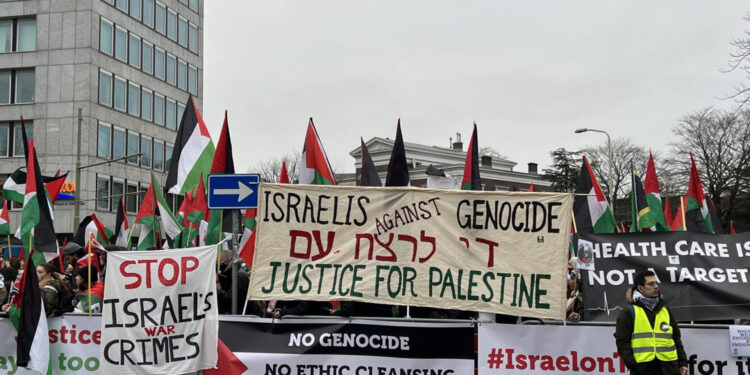Francesca Albanese, the UN Special Rapporteur for Human Rights in Palestine, said that Israel’s trial at the International Court of Justice on charges of committing a war of genocide in Gaza opens a new era in relations between the oppressed South and the empowered North, and sheds light on wars of genocide that have not yet been recognized.
Today, Friday, the International Court of Justice ordered Israel to take measures to prevent genocide in Gaza and direct incitement to it, as it rejected – in its ruling issued today, Friday – the Israeli request to dismiss the lawsuit filed by South Africa.
In a lengthy interview with the Israeli website “972+”, Albanese said that the arguments presented by the South African prosecution in court were strong in their effort to prove the existence of a premeditated Israeli intention to commit genocide in Gaza, and that legal experts from South Africa and Ireland came forward to defend a people who are still being subjected to colonialism. Settlement and the apartheid regime that previously afflicted South Africa have had a significant impact on it.
Albanese – an international lawyer who took over her current job last year, becoming the first woman appointed to the position that documents violations against Palestinians – added that what shocked her was Israel’s use of the terms of international humanitarian law itself to justify its attacks on civilians.
But Israel suffered a lot, according to the UN official, to provide a convincing explanation for its war on civilians in Gaza, and it even seemed to suffer while it was under the microscope of justice and the media.
Albanese says that the trial went beyond the issue of the genocide taking place in Gaza to symbolize opposition to colonialism as a whole.
European silence
In response to a question about the reasons for the silence of European countries regarding the issue of genocide against civilians in Gaza, Albanese sees this silence as normal, given the European mentality that is still trapped in the repercussions and repercussions of the colonial period.
She added that many of the genocidal wars committed by European colonial countries are still being denied, such as those committed by Germany in Namibia a few decades before the Holocaust.
Although any decision regarding the genocide charge itself may not be made for many years, the prosecutions against Israel in the Court of Justice would give a glimmer of hope to those living in the global south whose lives are hanging on the brink of the abyss, as Albanese put it.
On 29 December 2023, South Africa filed an application to institute proceedings against Israel regarding violations by Israel of its obligations under the Convention on the Prevention and Punishment of the Crime of Genocide with respect to Palestinians in the Gaza Strip.
The International Court of Justice did not issue orders to Israel to stop its military operations in Gaza, but it obligated Israel to take further measures to protect the Palestinians.
It is worth noting that the trial of Israel on charges of genocide in the Court of Justice (one of the six United Nations bodies) is separate from another legal effort in The Hague as well, where the UN General Assembly last month asked the court to express an advisory opinion on the legality of the occupation of Palestinian territories, an opinion that is not valid. Binding, unlike the temporary decisions issued by the Commission in cases of wars of extermination.



